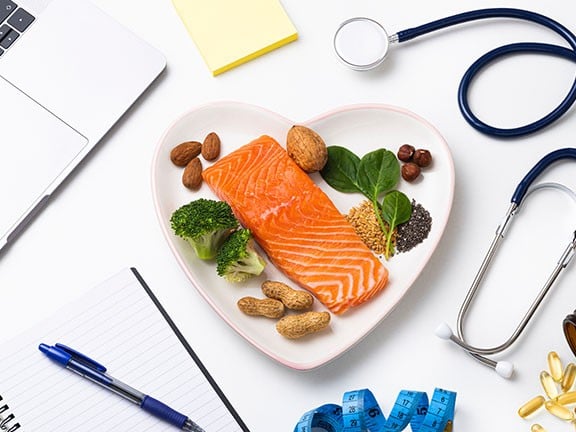Each year, about 805,000 Americans suffer a heart attack. The symptoms of a heart attack vary not only from person to person, but also from heart attack to heart attack in the same person.
It is important to remember that heart attacks can occur gradually or all of a sudden. Therefore, make sure you know the symptoms and call 911 immediately if you or your loved ones are experiencing signs of a heart attack.
1. Chest pain or discomfort
Middle chest or left side chest pain is the most common symptom of a heart attack in both men and women. This pain usually lasts a few minutes or comes and goes in waves. It can be mild to severe and can feel like heartburn or indigestion.
2. Upper body pain or discomfort
While many people typically assume that heart attack pain is concentrated around their chest and left arm, pain can affect different parts of the upper body.
Many women who have suffered a heart attack have experienced back, neck or jaw pain that began gradually or suddenly and was strong enough to wake them up from sleep. Unexplained pain should be reported to your doctor immediately.
Arm pain can also be a sign of a heart attack. This can affect either one or both arms.
3. Breathlessness, drowsiness and cold sweat
Many people may experience cold sweat, shortness of breath, or lightheadedness when having a heart attack. A nervous, anxiety-like feeling, accompanied by cold sweat, takes over the body. If you experience these symptoms for no apparent reason, such as physical activity, it could be a heart attack.
4. Unusual fatigue
Some people who have a heart attack feel extremely tired even when sitting still. Sometimes, the feeling of exhaustion is accompanied by a feeling of tiredness in the chest, leading to inability to perform simple activities such as walking to another room.
5. Nausea and vomiting
In some people, upper chest pain due to a heart attack is mistaken for heartburn or stomach ulcers. This symptom can range from mild pressure to strong pressure that feels as if an extreme weight on the abdomen is causing severe pain. Nausea and vomiting can also occur.
Every second sounds when you're having a heart attack. This is why it is important to call 911. You can request that they take you to a St. Luke's Health emergency room.
Sources:
American Heart Association | Warning Signs of a Heart Attack
American Heart Association | Heart Attack Symptoms in Women
CDC | Heart Disease Facts




